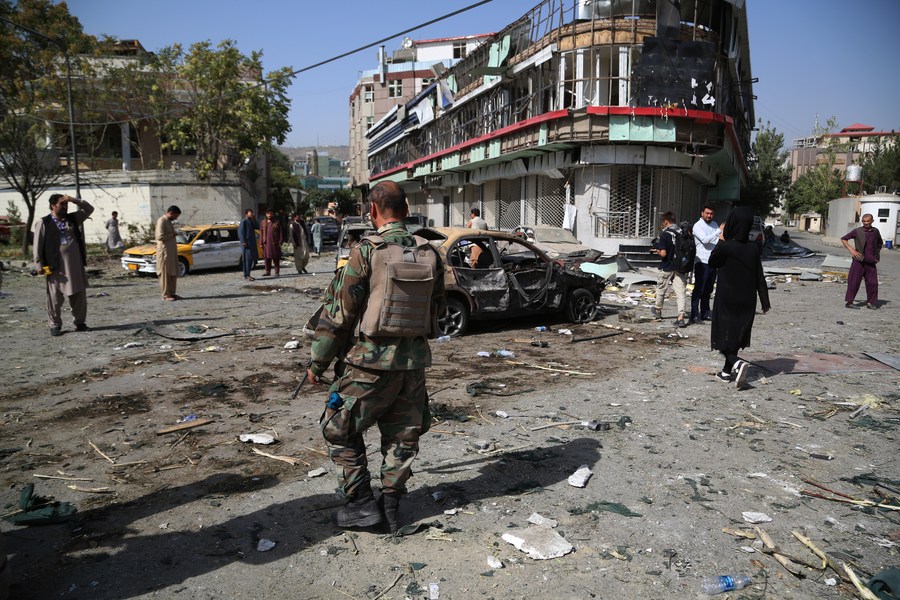Costs of US failure in Afghanistan will still continue to be counted: China Daily editorial
chinadaily.com.cn | Updated: 2021-08-17 19:53

At home, appalled Americans, Republican or not, are talking about "Biden's Saigon".
Abroad, and across the internet, allies, partners, and enemies alike are stunned by the scenes of the "debacle", caused by the United States' hasty withdrawal from Afghanistan.
President Joe Biden dislikes the comparison to Saigon, and says he was just following through on what he inherited from his predecessor, Donald Trump.
No complaints about the poorly executed final pullout have swayed his conviction that the US had to leave Afghanistan, the sooner, the better.
Trump was quick to take advantage of the ugly scenes, calling for his successor's resignation. Former secretary of state Mike Pompeo exploited the images of failure to amplify the "weakness" of Biden and the Democrats.
The less-than-graceful US departure from Kabul may prove a costly blow to the sitting US president at a time when populist feelings can so easily be manipulated.
Yet unseemly as it appears, the US' rapid drawdown from Afghanistan, following two decades of a vain attempt to build a Western-style democracy in a deeply religious country in addition to the loss of thousands of American lives and drain of up to $2 trillion may not be as deplorable as it now seems to US national interests.
But what truly matters, and is worth more serious attention than how it will affect the political career of any US politician, is what the ongoing changes in the Afghan political landscape mean for both the Afghan people and the rest of the world.
The swift collapse of the Afghan government and comeback of the Taliban have no doubt offered plenty of lessons for all to learn, including the ones Chinese State Councilor and Foreign Minister Wang Yi shared with Antony Blinken, US secretary of state, on Monday during a telephone conversation — that transplanting a foreign model on a country with utterly different national conditions won't work, and that trying to use force and military means to resolve problems will just increase them.
At the end of the day, it is up to the Afghans to decide who will run their country and what path they will follow in post-war reconstruction. However, it would not only be irresponsible for Washington to just leave the present mess in the war-torn country behind, but also be detrimental to US interests.
While the Ashraf Ghani government has demonstrated its weakness and incompetence over the past years, it remains to be seen what sort of government and governance structure will emerge in the again Taliban-dominated country.
The Taliban has agreed to not provide safe haven for terrorists, and to not threaten US security. And today's Taliban is said to be different from what it was.
Still, with the abrupt changes in Afghan politics, a brand-new test is awaiting all stakeholders — how to deal with a Taliban-led Afghanistan?
China on its part has had contact and communication with the Taliban and it is willing to play a constructive role in promoting enduring peace in the country and assisting it with reconstruction and development.























